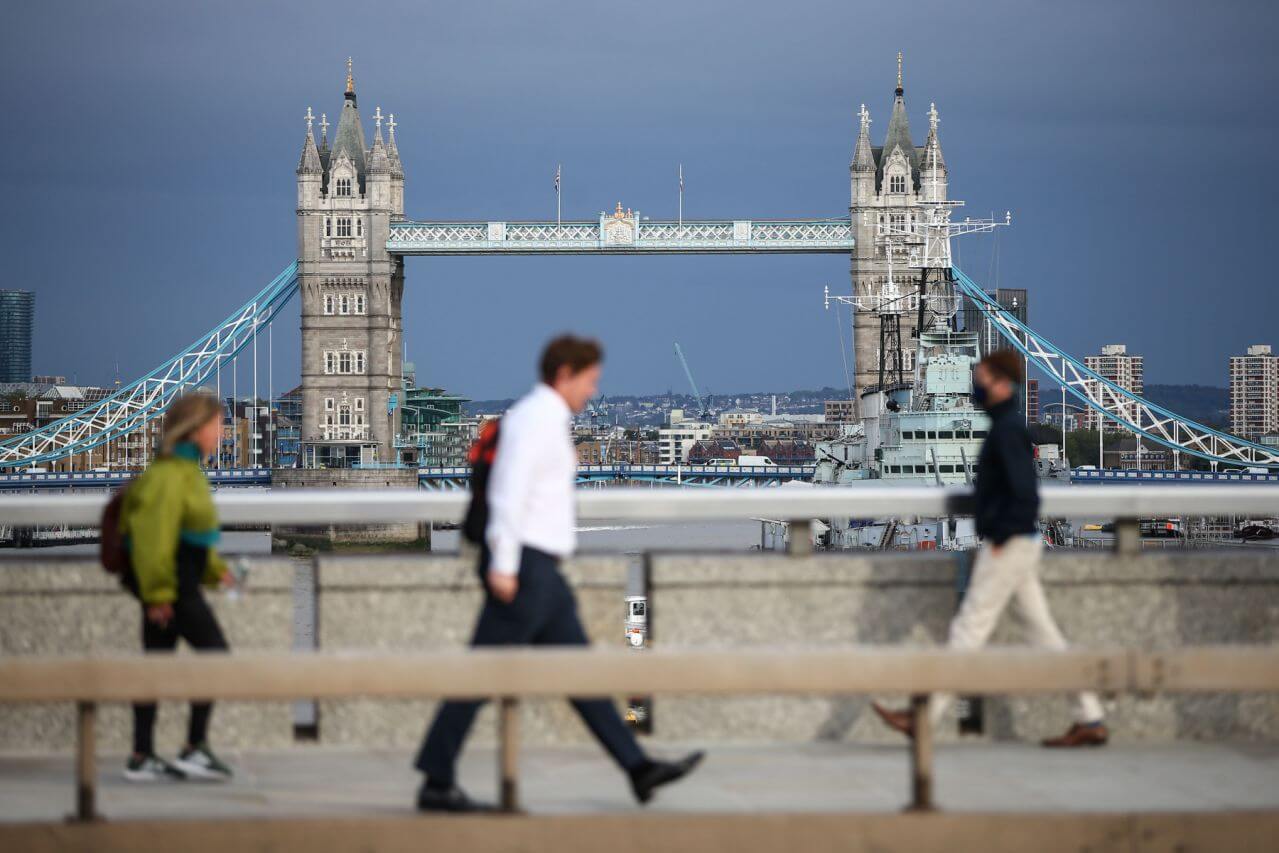
Ethnic pay gap hits lowest in UK since 2012 but still vast in London
The pay gap between white people and ethnic minorities has narrowed to its lowest level since 2012 but remains stark in London, according to new data.
The Office for National Statistics on Monday said the gap in average hourly wages earned by white people and non-white groups fell to 2.3% in the UK in 2019. The pay gap was down from 3.8% in 2018 and a high of 8.4% in 2014.
The average hourly wage for a worker from an ethnic minority background stood at £12.11 last year, compared with £12.40 for a white worker.
The data hides big disparities between different ethnic groups. People from Pakistani, African, and Bangladeshi backgrounds earned the lowest average wages of the 17 ethnic groups looked at by the ONS. Pakistanis and Bangladeshi workers earn about 15% less than white British employees.
George Bangham, an economist at the Resolution Foundation, said pay gaps for some groups such as Black African and Black Caribbean had actually got worse.
“It cannot be right that a Black African worker earns 13% less per hour than a white British worker of a similar age, and in a similar job,” Bangham said. “A pay penalty that large will reflect a mixture of discrimination and wider disadvantage.”
At the other end of the scale, some ethnic minority groups earned more than the average white worker. Indian and Chinese workers both earned a higher average hourly rate than white workers. When white Irish people are separated out as a distinct ethnic group, they were the highest earners with an average hourly rate of £17.55. That was 40% above the average wage of their British counterparts.
While the national ethnic pay gap is narrowing, it remains stark in the capital. Non-white workers earn almost a quarter less than white people in London. The ethnic pay gap was 23.8% in London. The smallest gap was in Wales, where it stood at just 1.4%.
The ethnic pay gaps is also more pronounced for men than women. White men earned 6.1% more than ethnic minority men on average, while white women earned 2.1% more than ethnic minority women.
Frances O’Grady, general secretary of the Trade Union Congress, said: “BME men and women are overrepresented in undervalued, low-paid and casual jobs, with fewer rights and no sick pay. During the pandemic many of them have paid for these poor working conditions with their lives.
“Enough is enough. Ministers must take bold action to confront inequality and racism in the labour market. And the obvious first step is to introduce mandatory ethnicity pay gap reporting without delay.”
Bangham also urged the government to mandate reporting on ethnic pay gaps.
“Greater transparency is needed for firms to confront these pay gaps, and the government can help this happen by extending gender pay gap auditing to include ethnicity too,” he said.

